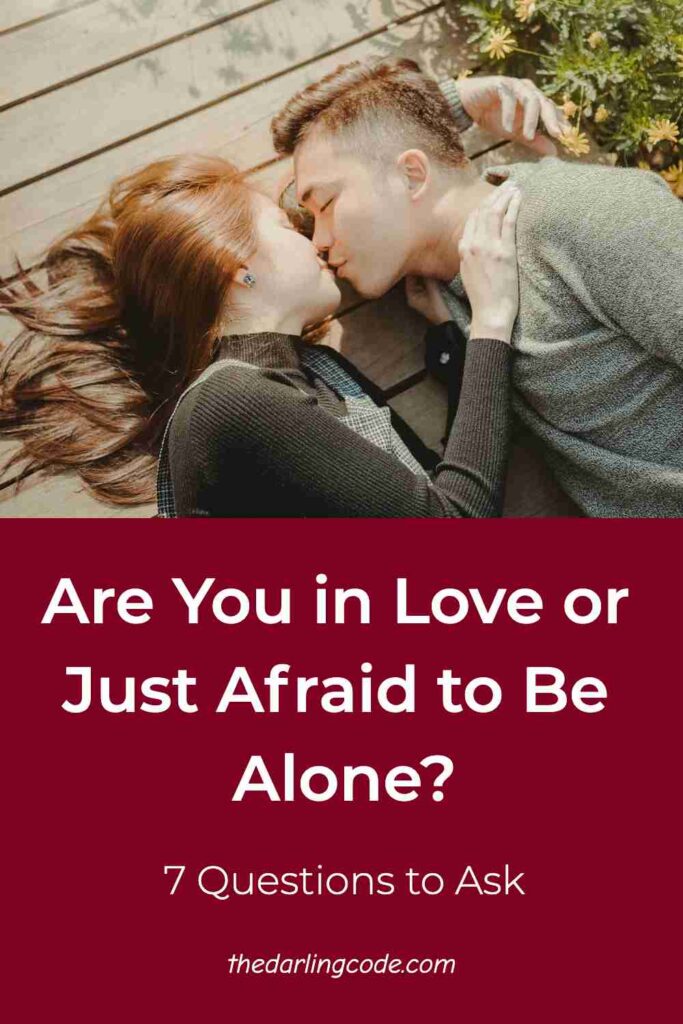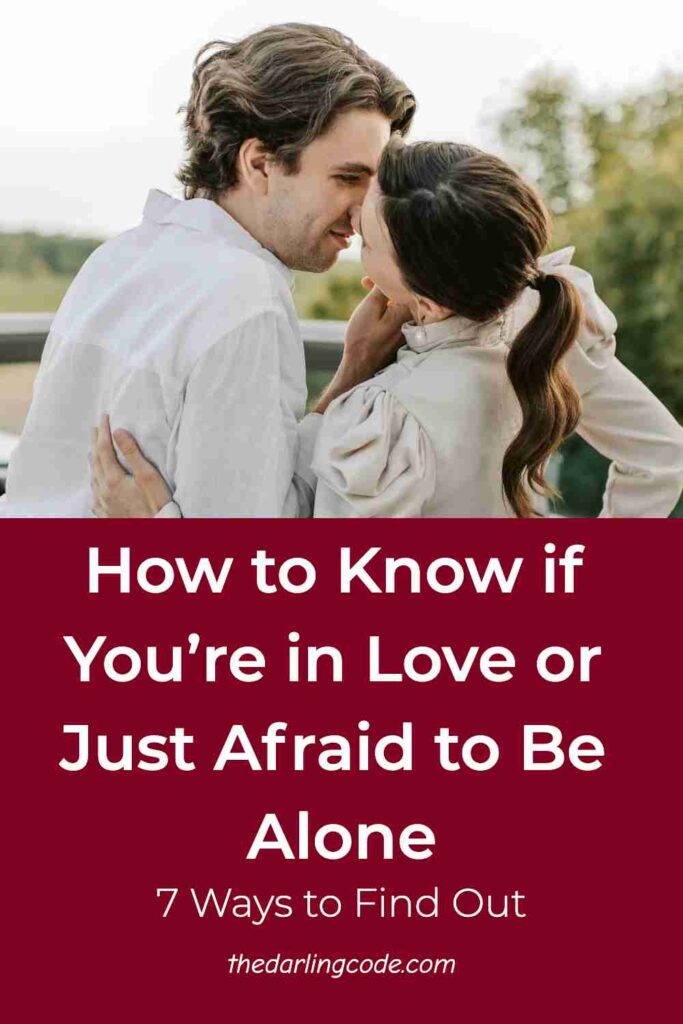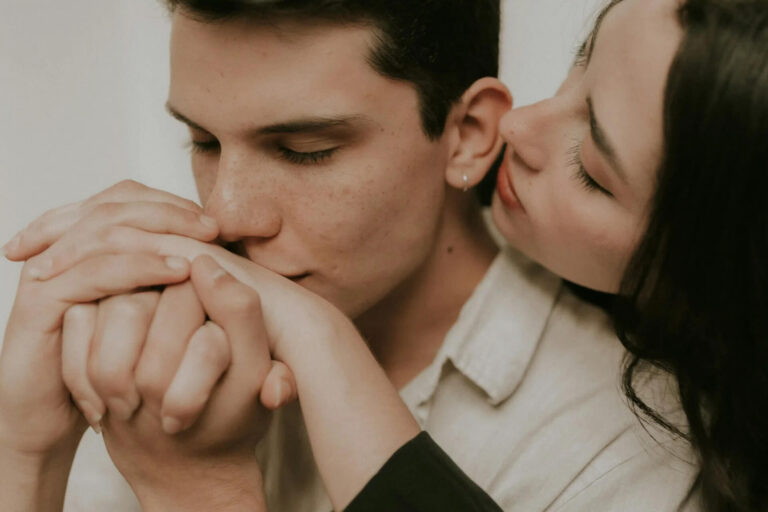Are You in Love or Just Afraid to Be Alone?
The experiences shared in this article are based on real emotional journeys, but all personal details are anonymized and used with the explicit written permission of the clients. Any resemblance to actual persons, living or dead, is purely coincidental. We are committed to treating all client stories with the utmost confidentiality and respect.
It’s 11:37 PM on a Tuesday. You’re curled up in bed, thumb hovering over Instagram stories of engagement rings and #CoupleGoals sunset hikes.
Across the room, your cat yawns loudly, unimpressed by your third rewatch of that rom-com scene where the guy chases the girl through the airport.
You sigh, half-laughing at yourself — but then your chest tightens. That familiar question creeps in: “Am I staying in this relationship because I truly love them… or because I’m terrified of being alone?”
If this moment feels achingly specific, you’re not imagining things.
Over my years as a relationship coach, I’ve sat across from countless women in cozy apartments, sunlit cafes, and Zoom screens glowing in the twilight — all asking variations of the same thing.
The truth? Untangling love from loneliness isn’t about grand gestures or therapy-speak. It’s about noticing the quiet patterns even Netflix can’t drown out.
Let’s start here:
Save this article for later—Pin it to Pinterest and come back when you need it! 📌

1. The “Weekend Test” (No, It’s Not What You Think)
Love and fear of loneliness often wear identical sweatpants. To spot the difference, try this:
Imagine your partner texts, “Need to cancel our plans — swamped with work this weekend.” Notice your first reaction (not the one you post-rationalize over wine with friends).
- If it’s love: Disappointment mixes with curiosity. “Bummer, but I’ll finally organize that closet/read my book/call Mom.” Their absence stings, but doesn’t destabilize you.
- If it’s fear: Panic hijacks your nervous system. You immediately brainstorm ways to “fix” the situation — offering to help with their work, suggesting a quick coffee, or worse: swallowing resentment to avoid confrontation.
Why this works: Fear-based attachment thrives on constant proximity. Love allows space for separate growth.
Mini-exercise: Next time plans change, pause. Write down three things you’d do solo if no one were watching. (No performative “self-care” — what do you genuinely crave?)
2. The Ghosts of Relationships Past
Let’s talk about Rachel (name changed), a 28-year-old client who loved hosting Friendsgiving but hated being “the single friend” by dessert. She stayed with a emotionally distant partner for 18 months, later admitting: “I kept thinking, ‘Better this than explaining to my coworkers why I’m still alone.’”
Sound familiar? Our brains play sneaky tricks:
- The Comparison Trap: Watching college friends’ baby showers on Facebook while microwaving leftovers for one.
- The Timeline Terror: “If I break up now, I’ll be 35 before I find someone else!” (Spoiler: You won’t.)
- The Holiday Hustle: Agreeing to meet their family for Christmas not because you’re ready, but to avoid your aunt’s “Are you seeing anyone?” interrogation.
Try this instead: Ask yourself: “If societal expectations disappeared tomorrow, would I still choose this relationship?”
3. Your Body Keeps Score (Even When Your Heart Lies)
My favorite barometer? Physical reactions.
Last winter, a client described her boyfriend’s hugs as “like being wrapped in a slightly damp towel.” She laughed it off — until we unpacked it. Turns out, her body had been signaling discomfort for months (stiff shoulders during dates, sighing relief when he left). Meanwhile, fear whispered: “But he checks all the boxes!”
Listen to:
- Energy spikes vs. crashes after time together
- Genuine laughter vs. performative giggles
- That flutter in your stomach: excitement or dread?
Pro tip: Track your mood for two weeks using emojis in your notes app. Patterns don’t lie.
4. The “What If” Game (Played Right)
Clients often ask: “But what if I leave and regret it?” My response? Let’s flip the script:
“What if you stay… and five years from now, you’re still having the same fights?”
“What if ‘being alone’ actually means freedom to rediscover yourself?”
“What if the right person feels easy in ways you can’t yet imagine?”
This isn’t about blind optimism. It’s about recognizing that fear shrinks your imagination — while love expands it.
5. The Mirror Test: Who Are You Becoming?
One of my most revealing exercises with clients? The “Future Self” visualization.
Close your eyes. Picture yourself five years from now, still in this relationship. What does your daily life look like? Are you:
- Laughing more than you sigh?
- Feeling challenged in ways that excite you?
- Proud of how you’ve grown together?
Now imagine your future self if you walked away. Does that version feel lighter? Scared? Relieved?
A client once tearfully admitted: “I realized I’d turned into someone who apologizes for existing. My future self looked… smaller.”
Your turn: Grab a journal (or your phone’s voice memo app). Describe your ideal future self in three adjectives. Does your current relationship align with that vision?
6. The Friendship Litmus Test
Here’s a trick I learned early in my career: Treat your relationship like a friendship.
Ask yourself:
- “Would I tolerate this behavior from my best friend?”
- “Do I feel genuinely curious about their inner world?”
- “Can we sit in comfortable silence?”
Love often feels like a deepened friendship. Fear? It’s more transactional — like clinging to a life raft.
7. The “Alone vs. Lonely” Experiment
Let’s get practical. For one month, schedule two solo activities weekly. Not “errands” or “work” — something that sparks joy.
Examples from past clients:
- A 32-year-old teacher rediscovered her love for painting murals in her garage.
- A 26-year-old software engineer started taking solo hikes — and met her now-partner on a trail.
Key insight: Being alone isn’t loneliness. It’s an invitation to rebuild your relationship with yourself.
Final Words from The Darling Code
If you’re still reading, here’s your permission slip: It’s okay to want love and fear loneliness. These aren’t opposites — they’re human. Your job isn’t to eradicate fear, but to stop letting it drive the relationship bus.
Start here tonight:
- Text a friend: “Can I vent about my relationship without advice?” (Judgment-free zones heal.)
- Write one sentence in your notes app describing how you’d spend a perfect Sunday alone.
- Re-read that sentence tomorrow. Notice what stirs — excitement, anxiety, or (most likely) both.
Growth lives in that messy middle.
—
With heart,
The Darling Code
P.S. Save this to your Pinterest “Relationship Advice” board. Tonight, try step #2 — even if your “perfect Sunday” involves cereal for dinner and zero bras. Progress, not perfection.
Got value from this article? Pin it to Pinterest for easy reference and help others discover it! 🌟


ABOUT THE AUTHOR
Vivienne, Relationship Coach & Self Love Coach
Vivienne is a Relationship Coach and Self-Love Coach who believes the key to great relationships starts with YOU. She helps individuals and couples build confidence, set healthy boundaries, and create connections that truly honor who they are.






